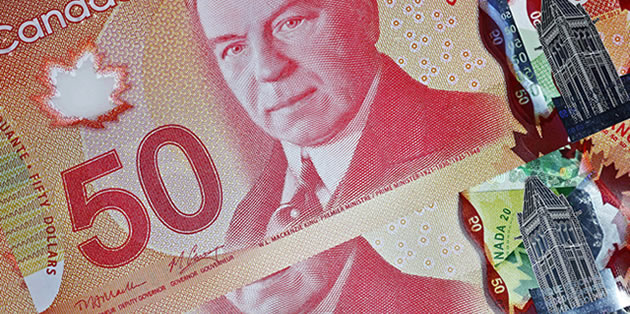The Euro to Canadian Dollar (EUR/CAD) exchange rate weakened on Friday and is rapidly approaching its lowest level in nearly two years as data out of Canada buoyed sentiment towards the ‘Loonie’ and fears over Greece weighed on the single currency.
The Euro to Canadian Dollar (EUR/CAD) Exchange Rate Fell To a Session Low of 1.3326
Economic data released by Statistics Canada showed that the nation’s economy created 28,700 new jobs in March. The figure was better than economist forecasts and comfortably beat expectations for the creation of just 5,000. The overall unemployment level remained unchanged at 6.8%.
The main area driving jobs growth was the service sector, which created 19,800 new jobs. The job rise was the first recorded since October last year. The natural resources sector, which includes gas and oil extraction, created 6,300 jobs after 26,000 were lost in the sector over the previous two months.
Part-time positions were shown to have increased by 56,800 last month, whilst full-time employment dropped by 28,200.
‘This is a profoundly mixed report. The full-time and part-time split is not great, and it’s been part of a trend. We have had a lot of part-time job creation, and that’s not the optimal kind,’ said Eric Lascelles, chief economist at RBA Global Asset Management.
Following the release of the data, the Canadian Dollar advanced strongly against the Euro, Pound Sterling and other major peers as it suggests that the impact of falling oil prices has had less of a negative impact on the economy than had been feared.
The positive report may also ease some of the pressure on the Bank of Canada to introduce more monetary easing measures such as another interest rate cut. The central banks next policy decision is due next Wednesday.
A separate report meanwhile showed that Canadian housing starts increased by 189,700 last month. The rise beat economist forecasts for an increase of 175,000. The preceding months figure was revised to 151,200 from an earlier estimate of 156,300.
Soft Eurozone Data and Greece Concerns Weigh on Euro Exchange Rate
The Euro meanwhile was under pressure from the release of data, which showed that industrial production was flat in February, confounding expectations for a dip of 0.1%.
Concerns over whether Greece will remain in the Eurozone were also weighing upon sentiment towards the single currency. Athens has just five days to deliver reform measures that the Eurogroup will find acceptable before urgently needed bailout funds are granted. If no cash is given, then Greece could go bankrupt at the end of the month.



